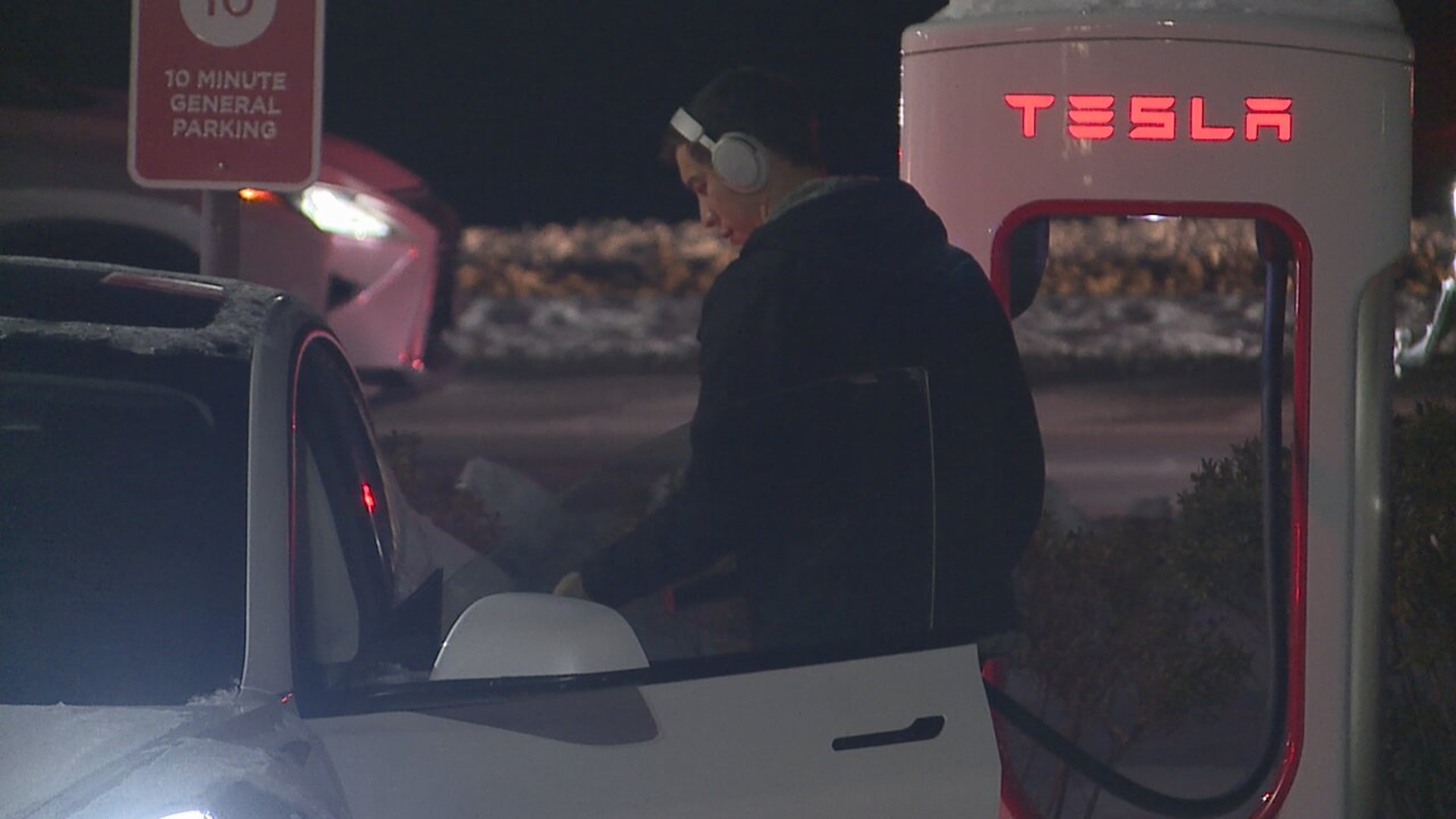PENNSYLVANIA, USA — Cold weather is causing a flurry of problems for electric vehicle owners across central Pennsylvania due to the effect it has on its lithium-ion battery.
"You can tell the battery goes faster," said Leah Williams, a Harrisburg resident who has owned an EV for four years. "You cannot let your battery go down [in the cold]."
"There’s definitely been a decrease in battery life with the colder weather and even with charging times it's been increased," said Madison Lawrence, a one-year EV owner from York. "It’s complicated because I have to take time out of my day, sometimes every other day just to charge and refill my battery."
Experts say the cold is causing the chemical reaction happening within the EV battery to slow down exponentially. They say battery range for EVs can be reduced by up to 30% in the cold and at zero degrees can lose 10 times the amount of power. Depending on the type of charging station, recharges in the cold can also double or even triple in time.
"The chemistry in the battery will slow down almost exponentially with decreasing temperature," said Chao-Yang Wang, the William E. Defender Chair Professor at Penn State's Department of Materials Science and Engineering who specializes in batteries and fuel cells. "The decrease in performance especially in power delivering is very dramatic."
Current battery technology has trouble combating the issue; however, experts say innovative solutions should be coming soon.
"Scientific solutions already exist," said Wang. "It takes time for the auto industry to implement practical solutions and start to provide viable products to our customers. I believe in four to five years this problem will go away completely."
They add that the current lack of infrastructure available to EVs also contributes to the issue.
"With electric cars, you really have to think about your range, where you’re going, and the [accessibility] to a charging network, particularly in rural areas where there are not as many chargers out there," said Wayne Staib, a sales manager at Lehman Volvo. "That’s the big challenge, the convenience of a gas station versus finding a charger. I think eventually once we have a charging network that’s built out this will be less of a problem."
In the meantime, experts suggest using the pre-condition setting offered in some EVs to optimize battery performance in the cold. Drivers should also ensure a full charge and keep EVs in warmer conditions when not in use if possible.
"A lot of it just basic prep work to do before you make a trip," said Staib. "It’s just a little bit extra steps but it will make a world of a difference in terms of the usability of your car."
"Before breakthrough solutions come along, I would advise drivers and customers to, right now, be well prepared for these winter conditions," said Wang.

